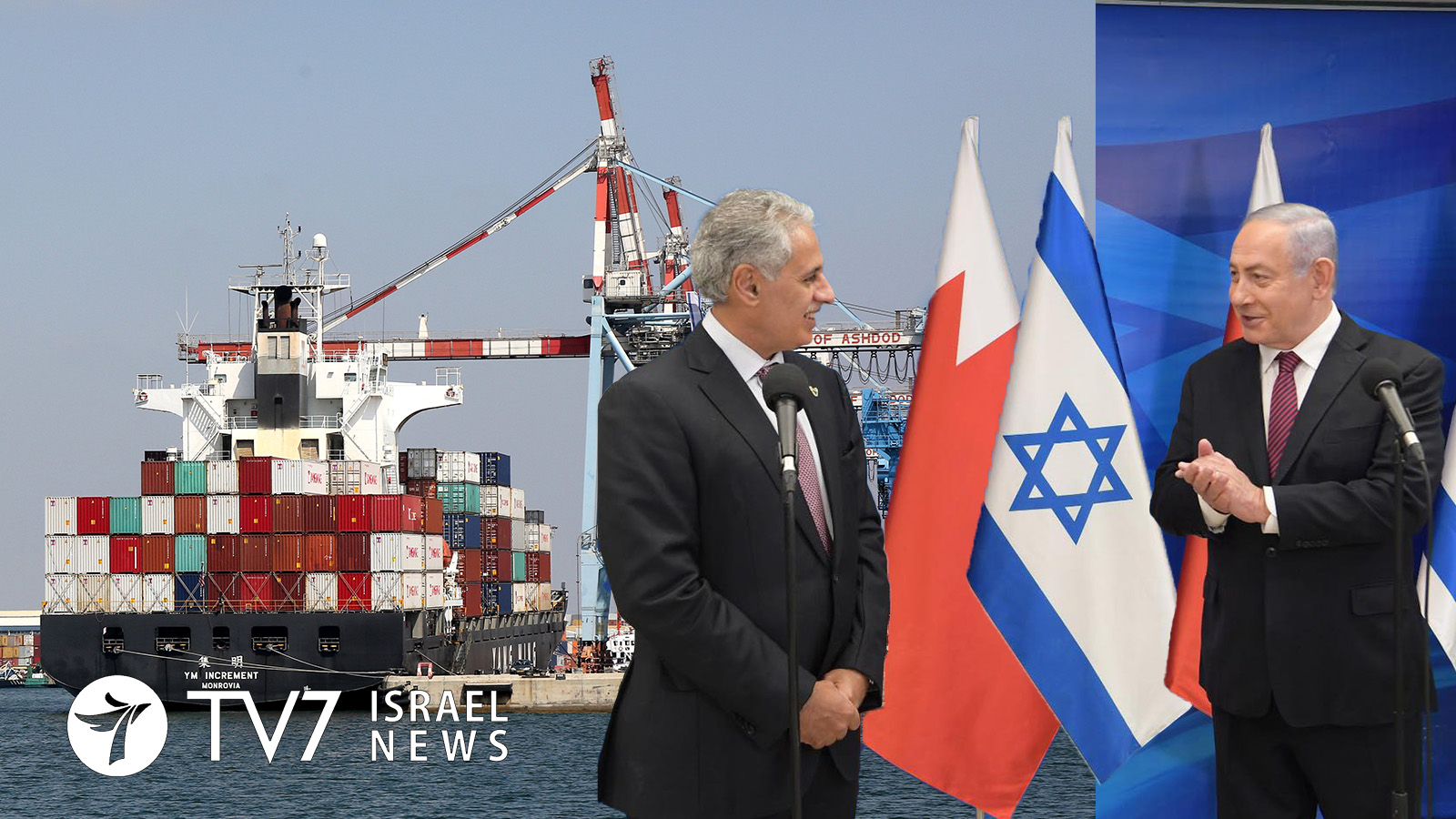[Editor’s Note: This article has been updated to reflect later statements by Bahrain Foreign Minister Abdullatif bin Rashid Al Zayani that Manama will distinguish between Israeli goods from disputed territories and those made in Israel proper].
Israel’s new peace partner Bahrain will not boycott goods manufactured in the West Bank.
The West Bank, known to most Israelis by their biblical names of Judea and Samaria, is home to some 440,000 Jewish settlers who live uneasily among three million Palestinians, mostly in fortified hilltop settlements.
“We will treat Israeli products as Israeli products. So we have no issue with labelling or origin,” Bahrain’s Industry, Commerce and Tourism Minister Zayed bin Rashid al-Zayani announced during a three day visit to Israel.
The European Union mandates that all settlement products should be clearly labelled as such, in a policy harshly condemned by Jerusalem as discriminatory and in keeping with the anti-Israel Boycott, Divestment and Sanctions (BDS) campaign.
Last month, the administration of United States President Donald Trump removed all customs distinctions between goods made within Israel and in settlements. Mike Pompeo made the announcement in November as he became the first U.S. Secretary of State to visit an Israeli West Bank settlement and the Golan Heights.
While standing alongside Israeli Prime Minister Benjamin Netanyahu, Pompeo declared that, “the Department of State is initiating new guidelines to ensure that country of origin markings for Israeli and Palestinian goods are consistent with our reality-based foreign policy approach. In accordance with this announcement, all producers within areas where Israel exercises the relevant authorities – most notably Area C under the Oslo Accords - will be required to mark goods as “Israel,” “Product of Israel” or “Made in Israel” when exporting to the United States.”
The top American diplomat stressed, “This approach recognizes that Area C producers operate within the economic and administrative framework of Israel and their goods should be treated accordingly. This update will also eliminate confusion by recognizing that producers in other parts of the West Bank are for all practical purposes administratively separate and that their goods should be marked accordingly.”
Washington brokered the Abraham Accord peace treaties between Israel with Bahrain and the United Arab Emirates on 15 September, in a deal billed by the Gulf countries as being made possible by Netanyahu’s shelving of a plan to annex West Bank settlements which the majority of world powers deem to be illegal.
Jerusalem’s strategic, commercial and other ties with Manama and Abu Dhabi have soared since that time.
Israel expects trade with Bahrain worth around $220 million in 2021, not including possible defense and tourism deals.
It was not clear what other Gulf states’ positions on imports from settlements are, although one Israeli winery that uses grapes grown on the Golan Heights said in September that its labels would be sold in the UAE.
Bahraini Minister Al-Zayani also announced that his nation’s carrier Gulf Air is tentatively scheduled to begin flights to Tel Aviv on 7 January, with shipping to follow.
“We are fascinated by how integrated IT and innovation sector in Israel has been embedded in every facet of life,” he said.
Most movingly, Al-Zayani remarked that during a nighttime walk on Jerusalem’s Temple Mount that he felt the ‘spirit’ of the holy sites.
The Palestinians immediately condemned Bahrain’s new import policy regarding Israel. Wasel Abu Youssef of the Palestine Liberation Organization said the move as “contradicting international and U.N. resolutions.” Moreover, he called on Arab countries to boycott all products produced anywhere in Israel to prevent it “stretching into Arab markets to strengthen its economy.”
The Palestinians have rejected Israel’s recent normalization agreements with Bahrain, the UAE and Sudan, as well as the Trump administration’s strong support for the Jewish State, in fear that the peace process has badly damaged their own statehood aspirations.
